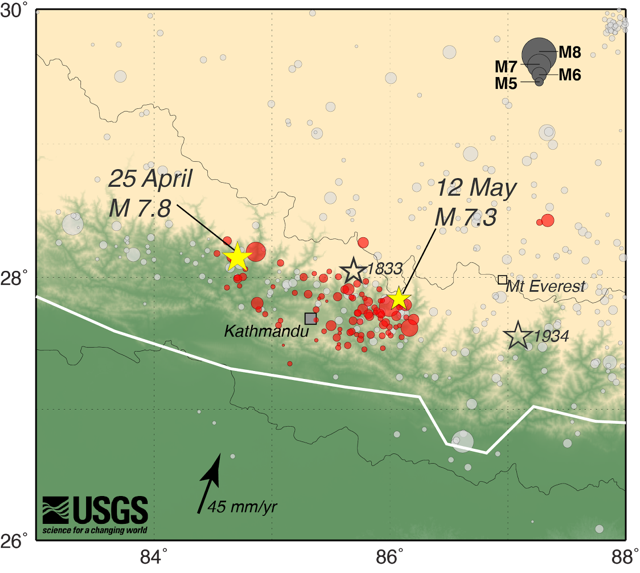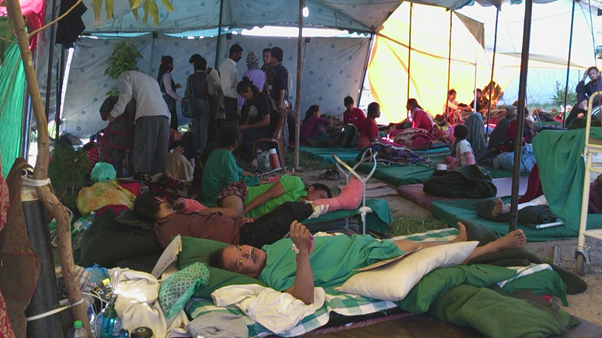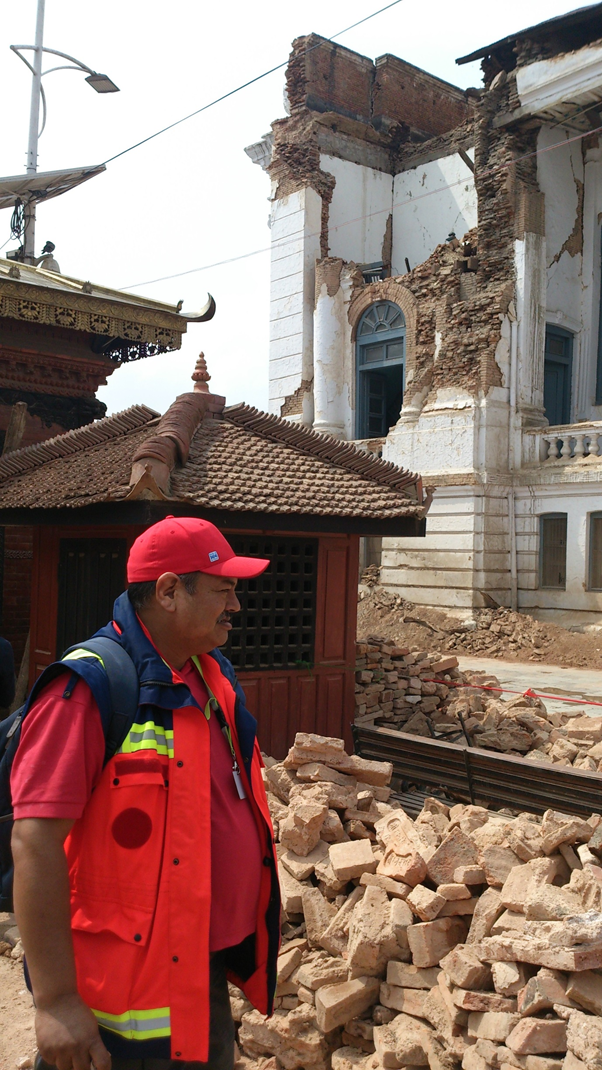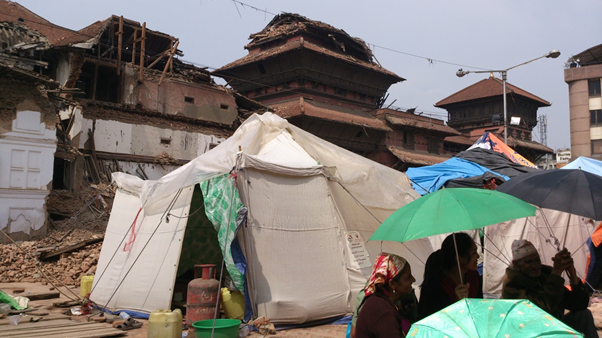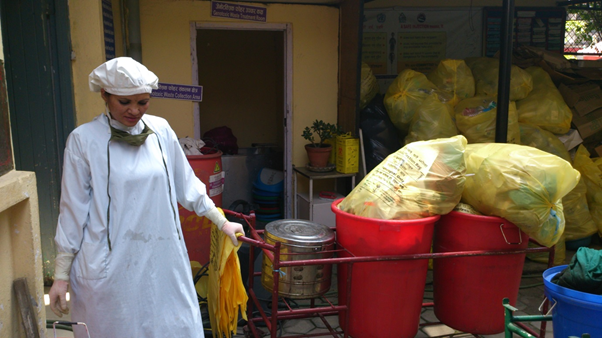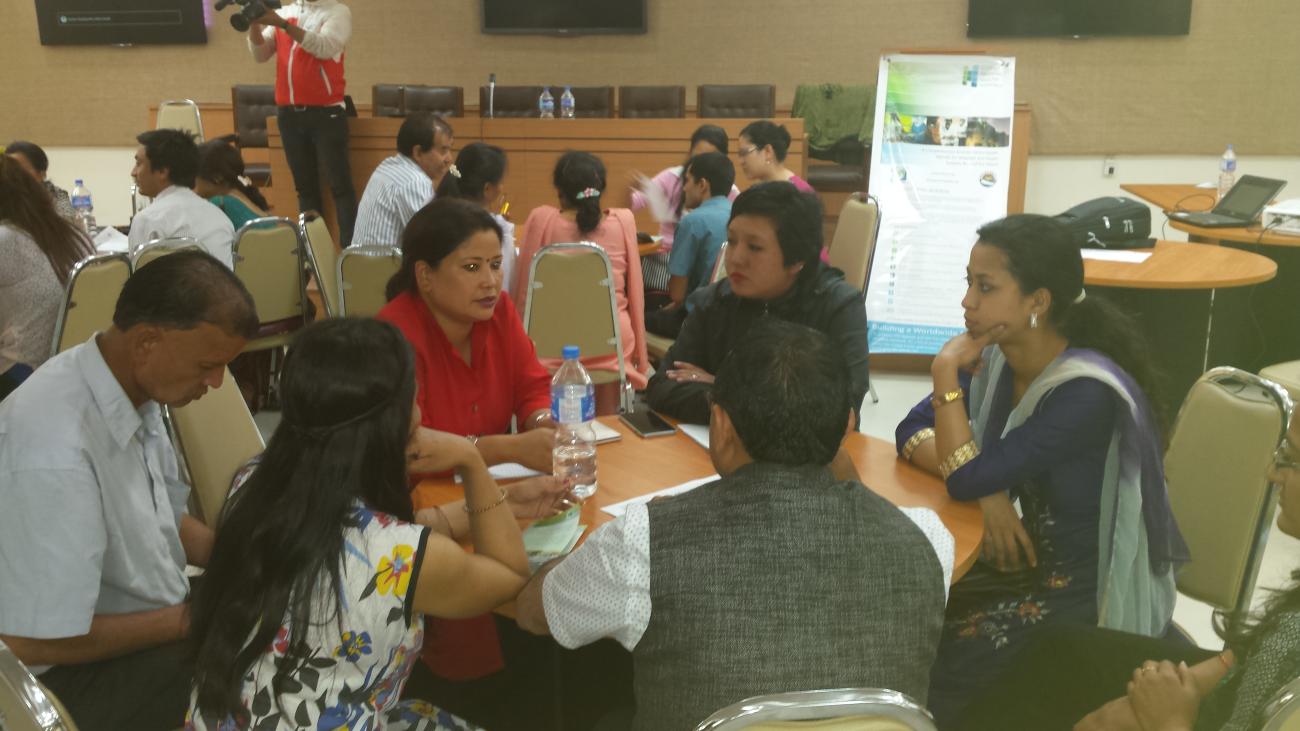One year on from the devastating Gorkha Earthquake in Nepal, which killed more that 8,000 people, injured 22,000 and damaged or destroyed some thousand hospitals or healthcare centres, Health Care Without Harm, with strategic partner Health Care Foundation Nepal (HECAF), and Tzu Chi Foundation (Taiwan), are organising a conference to disseminate lessons learned over the last twelve months and develop strategies to increase the resilience of the healthcare sector against similar events in the future.
“Building hospitals and healthcare centers that can serve us in the worst of times takes skills in many disciplines so we are bringing together national and international experts with diverse experience to help create a stronger system for all,” Mahesh Nakarmi, director of Health Care Foundation Nepal’s Waste Management Project.
The conference, “Strength from Disaster: Lessons from the Gorkha earthquake and other global crises as catalysts to create a resilient healthcare system” has been organised in collaboration with the Ministry of Health, Association of Private Health Institution Nepal, Association of Non-Government Hospitals and the World Health Organization, and will be held at the Hotel Annapurna, Kathmandu, Nepal on 26th and 27th April 2016 (14th and 15th Baisakh 2073).
Experts from Nepali and international organisations will participate to share their knowledge and lead the debate on the way forward to a stronger and more robust global health system. Waste management, water, sanitation, building design and energy systems are all critical to creating a system that can allow the healthcare professionals to continue treating patients safely in the face of disasters of all types.
In response to the humanitarian emergency, the community of hospitals in Global Green and Healthy Hospitals raised funds in support of HECAF’s efforts to maintain and rebuild critical healthcare waste management systems. Lessons learned from these initiatives will be presented at the conference and conclusions from the conference delegates’ discussions will be published.
Health Care Without Harm International Science and Policy Coordinator, Ruth Stringer, said, “In the aftermath of a disaster, be it an earthquake or a climate-related event, the demand on our health services is at its greatest, yet the system itself can also be severely impacted. I was immensely proud to see how well the waste management systems at our partner hospitals coped during the crisis and thought it was important to share their stories so that others could learn from them.”
Mahesh Nakarmi, director of Health Care Foundation Nepal’s Waste Management Project, said “Building hospitals and healthcare centers that can serve us in the worst of times takes skills in many disciplines so we are bringing together national and international experts with diverse experience to help create a stronger system for all.”
Photos
Map of the Gorkha earthquake and aftershocks. Credit: US Geological Survey.
Hospital patients being treated in tents. Even when hospitals were not seriously damaged, they were treated outside because of the risk of aftershocks Credit: Stringer/HCWH
HECAF director Mahesh Nakarmi surveys the damage in historic Kathmandu Durbar Square. Credit: Stringer/HCWH
Displaced residents living in tents in historic Kathmandu Durbar Square. Credit: Stringer/HCWH
Healthcare waste worker collecting infectious waste for treatment at a major Kathmandu hospital. Waste generation more than doubled in the days after the earthquake. Credit: Stringer/HCWH
Representers from GGHH members in Nepal attaneded the conference “Strength from Disaster: Lessons from the Gorkha earthquake and other global crises as catalysts to create a resilient healthcare system”. Credit: Susan Wilburn
More Information
- Nepal | Safe Waste Management Taking Shape at Hospitals. Read article
- The Biofuel Autoclave: A Low Cost, Non-electric Solution to Infectious Medical Waste. Read article
- Nepal | Hospital Implements Safe Medical Waste Disposal Treatments. Read article
- Nepal | Bir Hospital Transforms its Healthcare Waste Management (see video)
Kathmandu — Since 2010, Health Care Foundation Nepal (HECAF) and Health Care Without Harm, supported by the World Health Organisation, have been working with the leadership and staff of Bir Hospital to transform their healthcare waste management. more
